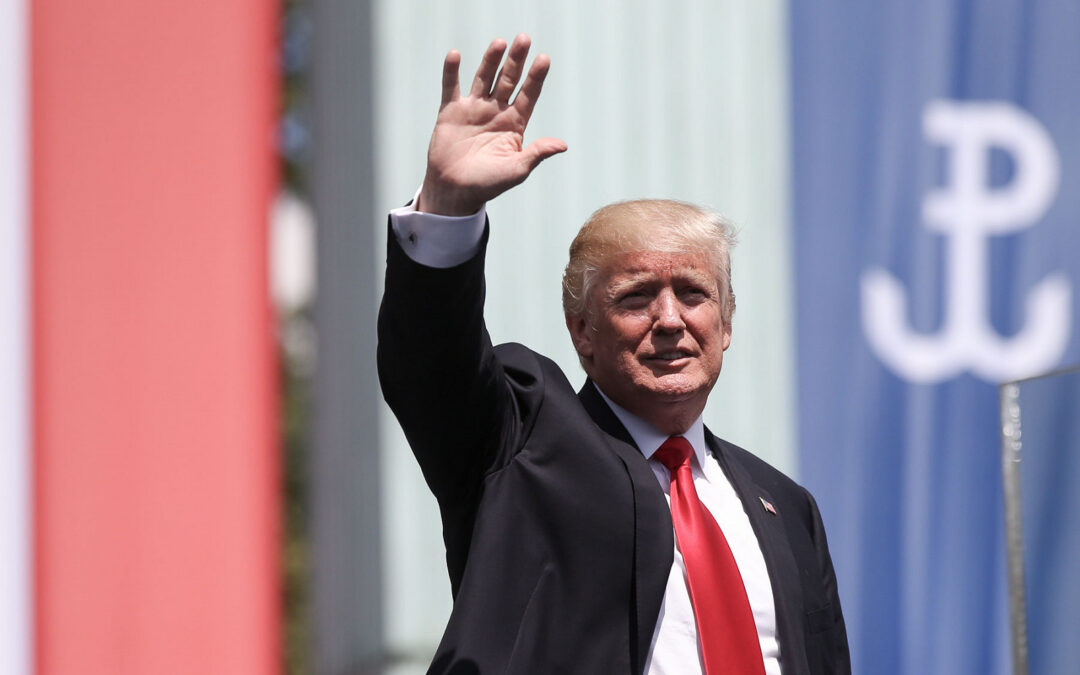Poland’s culture minister has called for state-run companies to buy as many media outlets as possible, after reports emerged that a state energy giant is in talks to buy a newspaper group.
“Wherever it is possible, state-owned companies should buy media,” Piotr Gliński, who is also a deputy prime minister, told radio station RMF FM.
🎥 Wicepremier @PiotrGlinski w #RozmowaRMF: Polska Press przejęta przez @PKN_ORLEN? Spółki państwowe najprawdopodobniej powinny kupować media @RMF24pl pic.twitter.com/h9ZN0uKnV1
— RozmowaRMF (@Rozmowa_RMF) October 13, 2020
“Repolonisation” of the media
Poland’s ruling national-conservative Law and Justice (PiS) party has long called for the “repolonisation” of Polish media that are in the hands of foreign – mainly German – owners, arguing that this would serve the national interest.
Poland must “fiercely defend its sovereignty in this area”, said Jarosław Kaczyński – PiS’s chairman and Poland’s de facto leader – in July. He expressed hope that legislation to reduce foreign ownership could be passed during the current parliamentary term, though he admitted that “international reactions” would make this harder.
His words came shortly after a presidential election campaign in which PiS and its candidate, incumbent president Andrzej Duda, accused German-owned Polish media outlets of spreading “fake news” designed to undermine Duda and help the opposition.
The government’s opponents, however, say that the real aim behind the policy is to neuter independent, critical media outlets and bring more of the industry under the influence of PiS and its allies. They point to Hungary – whose government is an ally of Poland’s – as a worrying example of where this can lead.
Last week, The Economist reported that Orlen – a state-owned oil refiner that is Poland’s largest company – is in talks with German publishing group Verlagsgruppe Passau over buying its Polish arm, Polska Press, which owns 20 out of Poland’s 24 regional daily newspapers as well as dozens more local weeklies and news websites.
“These papers…are important for the ruling party because their readers tend to be in rural, very Catholic parts of Poland, its core constituency,” noted The Economist.
The Hungarian model – Poland’s ruling party may clobber independent media https://t.co/yxDYSFvFRF
— Hasan Cemal (@hsncml) October 13, 2020
“Better Polish than German”
Speaking to RMF today, Gliński rejected interviewer Robert Mazurek’s suggestion that the move marked a step towards the “Orbanisation of the media” in Poland.
“It’s not a normal situation that practically all the local press in Poland is in the hands of, firstly, one corporation and, secondly, a German corporation,” said the culture minister.
Mazurek pointed out that, if the sale went ahead, all those media outlets would still be in the hands of a single corporation. But Orlen is “a beautiful Polish company,” responded Gliński. “Better Polish than German.”
“I don’t think it will be destructive to the media market, that it will be some kind of monopoly,” he continued. “At the moment there is a huge predominance of media that are not in the hands of capital associated with the Polish government.”
State-owned firms in Poland have long been under government influence, though observers have noted an increase in political appointments under PiS. Orlen is led by Daniel Obajtek, who previously served as mayor of a rural community of 11,000 people but, since PiS came to power in 2015, has seen his career accelerate through various state-linked entities.
Gliński also told RFM that the aim of the government’s policy is to bring greater “pluralism to the Polish media market”, where there has been “a one-sided monopoly [with] very few independent media”.
But critics point out that Polish media outlets are owned by a range of institutions, and that most national newspapers, TV and radio stations and news websites are Polish owned. Even those in foreign hands have a number of different owners.
Since PiS came to power, it has directed state advertising money towards friendly media outlets and away from critical ones, a policy also followed to some extent by previous governments. Meanwhile, it has asserted an unprecedented degree of influence over public media, which are used to promote PiS’s agenda and and support its election campaigns.
In the annual World Press Freedom Index compiled by Reporters Without Borders, Poland has fallen for five years in a row, from its highest ever position of 18th in 2015 to its lowest ever position of 62nd in this year’s ranking.
Main image credit: Krystian Maj / KPRM (under public domain)

Daniel Tilles is editor-in-chief of Notes from Poland. He has written on Polish affairs for a wide range of publications, including Foreign Policy, POLITICO Europe, EUobserver and Dziennik Gazeta Prawna.




















